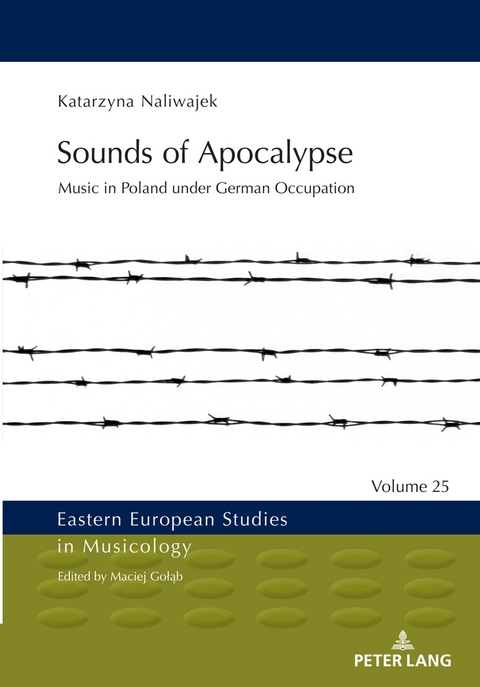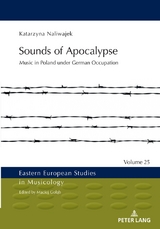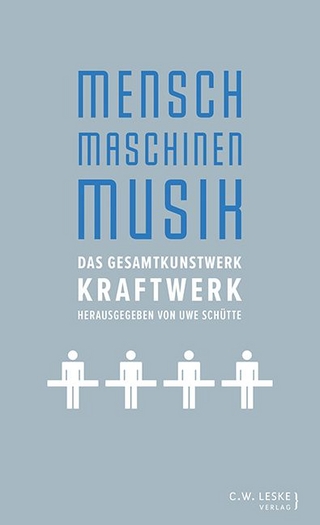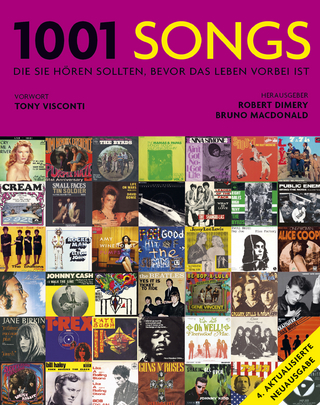Sounds of Apocalypse
Music in Poland under German Occupation
Seiten
2023
Peter Lang Gmbh, Internationaler Verlag Der Wissenschaften
978-3-631-88170-5 (ISBN)
Peter Lang Gmbh, Internationaler Verlag Der Wissenschaften
978-3-631-88170-5 (ISBN)
lt;p>An analysis of sources on music in occupied Poland confirms that access to music, proportionate to racial status, was used to divide the population and facilitate implementation of the Third Reich's objectives. While Nazi songs and propaganda dehumanized prospective victims, clandestine music restored dignity and fostered resistance.
lt;p>This investigation of Polish, Jewish, and German sources demonstrates the roles of music in occupied Poland. Its former citizens had their access to music controlled by the Nazi Ministry of Propaganda. It was rationed as other goods, depending on racial (i.e. also legal) status. Official music performances served as a propagandistic tool to further divide the Nazi-segregated population. Music played clandestinely embodied resistance. It restored the sense of community and helped save musicians persecuted as Jews, like Wladyslaw Szpilman. The documents analyzed in the monograph confirm the dehumanization of prospective victims, mixed with a narcissistic self-righteous view of Nazi songs and propaganda ultimately led to the organized presence of music in the Holocaust sites.
lt;p>This investigation of Polish, Jewish, and German sources demonstrates the roles of music in occupied Poland. Its former citizens had their access to music controlled by the Nazi Ministry of Propaganda. It was rationed as other goods, depending on racial (i.e. also legal) status. Official music performances served as a propagandistic tool to further divide the Nazi-segregated population. Music played clandestinely embodied resistance. It restored the sense of community and helped save musicians persecuted as Jews, like Wladyslaw Szpilman. The documents analyzed in the monograph confirm the dehumanization of prospective victims, mixed with a narcissistic self-righteous view of Nazi songs and propaganda ultimately led to the organized presence of music in the Holocaust sites.
Katarzyna Naliwajek, PhD, works at the Institute of Musicology, University of Warsaw, Poland. She has focused her research on music during the Nazi-Soviet occupation of Poland, Polish music in the 20th century, and connections between music and politics.
lt;p>Nazi pseudo-musicology - Occupied Poland - Holocaust - Music in Occupied Poland - Nazi propaganda - music as resistance
| Erscheinungsdatum | 10.09.2022 |
|---|---|
| Reihe/Serie | Eastern European Studies in Musicology ; 25 |
| Mitarbeit |
Herausgeber (Serie): Maciej Gołąb |
| Verlagsort | Frankfurt a.M. |
| Sprache | englisch |
| Maße | 148 x 210 mm |
| Gewicht | 253 g |
| Themenwelt | Kunst / Musik / Theater ► Musik ► Musikgeschichte |
| Schlagworte | Apocalypse • Generalgouvernment Philharmonics • German • Golab • Gołąb • Holocaust and genocide • Katarzyna • Maciej • music • Music as resistance • Music in death camps • Naliwajek • Nazi • Occupation • occupied • Poland • Sounds • Soviet-Nazi occupation • Warsaw Ghetto |
| ISBN-10 | 3-631-88170-3 / 3631881703 |
| ISBN-13 | 978-3-631-88170-5 / 9783631881705 |
| Zustand | Neuware |
| Haben Sie eine Frage zum Produkt? |
Mehr entdecken
aus dem Bereich
aus dem Bereich
das Gesamtkunstwerk Kraftwerk
Buch | Softcover (2024)
C.W. Leske Verlag
24,00 €
Buch | Softcover (2022)
Edition Olms (Verlag)
29,95 €




